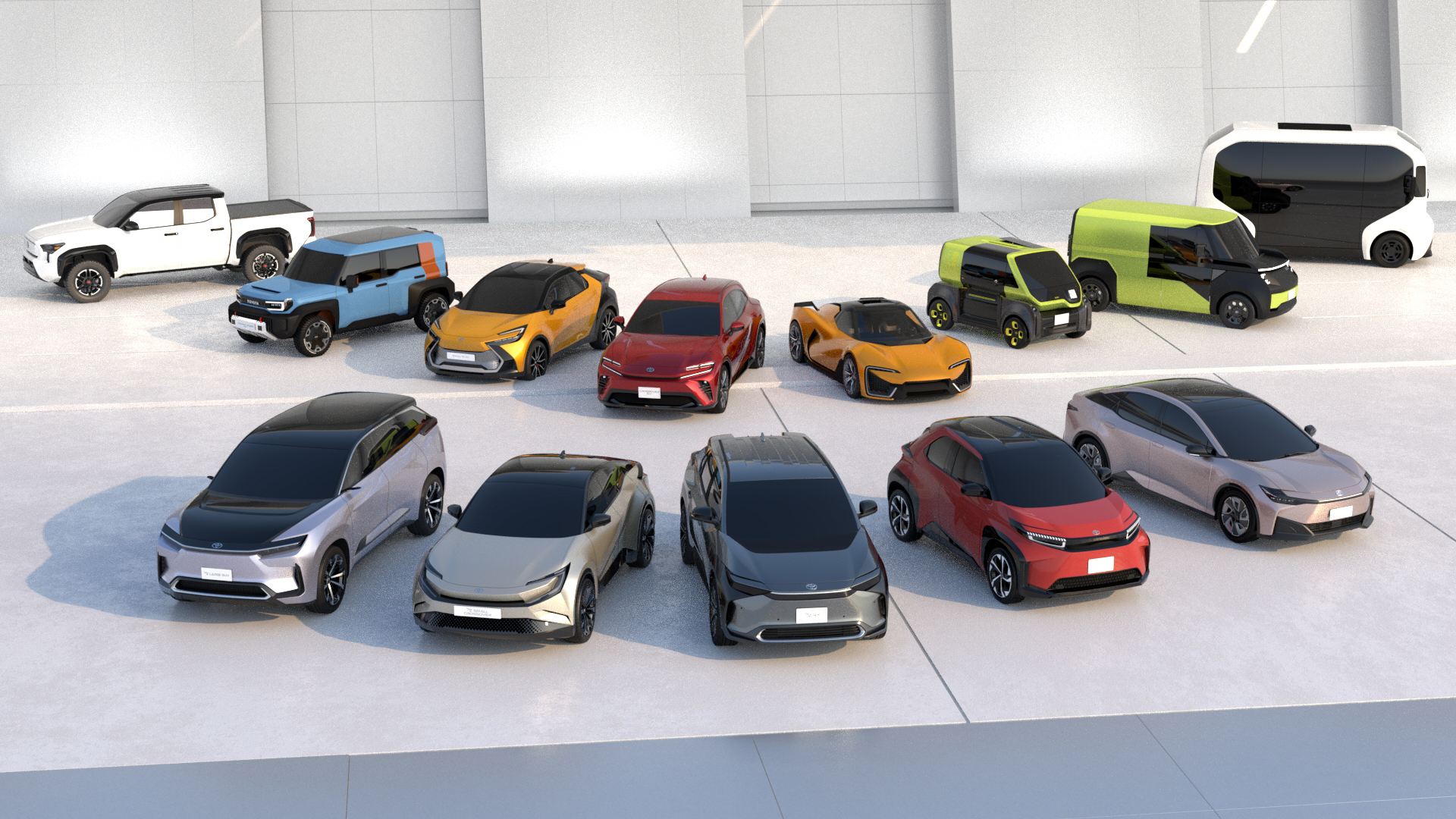

Early on, Toyota actively lobbied against battery electric vehicles. Then it realized that as the world’s biggest automaker, it needed to switch sides if it wanted to continue selling cars at scale. Today, it’s announcing a $70-billion investment to electrify its entire lineup by 2030, dedicating nearly half that amount to developing battery-electric, zero-emission vehicles alone. It’s also announcing that Lexus, the automaker’s luxury brand, will become an electric-only brand by 2035.
Toyota’s news briefing in Tokyo Tuesday morning also revealed 15 EV concepts destined for production, including sedans, crossovers, SUVs, and even a two-door sports car. The company’s timeline details the introduction of 30 new electric cars by 2030, in addition to the 15 models Toyota claimed it would have ready by 2025.

“The Toyota brand now offers more than 100 models of engine-only vehicles, hybrid electric vehicles, plug-in hybrid electric vehicles, and fuel cell electric vehicles in more than 170 countries and regions,” said Toyota president Akio Toyoda in the press conference. “The Lexus brand has introduced more than 30 models of engine-only vehicles, hybrid electric vehicles, and plug-in hybrid electric vehicles in more than 90 countries and regions.”
“We will expand the options for carbon-neutral vehicles by offering a full lineup of battery EVs,” Toyoda added. “Specifically, we plan to roll out 30 battery EV models by 2030, globally offering a full lineup of battery EVs in the passenger and commercial segments,” Toyoda announced.
Keyword “expand,” not replace. Toyota is extremely adamant on this: building electric vehicles to diversify its lineup but it will not give up making combustion and hydrogen vehicles. “The world is becoming evermore diverse, people are increasingly confident in making their own choices to lead free and enjoyable lifestyles,” said Simon Humphries, Toyota Design Senior General Manager.
That’s echoed in Toyoda explaining the broader strategy:
“As for why we try to keep so many options, in terms of business management, one might think it’d be more efficient to focus on fewer choices,” said Toyoda. “However, we believe that quickly adapting to changes in the future is more important than trying to predict the future, which is uncertain. That is why we want to keep options available for our customers until the right path is clear.”
With combustion specifically, the path has been clear for some time. Toyota’s ongoing commitment to hydrogen shored up with Japanese government funding is what it is, but to pretend that the hammer hasn’t fallen on what we know to be wrong with petrol and diesel vehicles, in 2021, is wilfully overlooking a disaster while saying it still wants to sell to it.
Climate campaigning group Sum Of Us immediately issued a statement, saying that unless Toyota stops lobbying against electric vehicles and starts exerting pressure towards greening electricity networks, then the announcement is insincere. It’s a little hard to argue with that assessment and Toyota representatives struggled to, during the call.
The strategy is, it appears: Toyota would like to sell electric vehicles where it’s convenient but is very much not interested in stopping its lucrative internal combustion sales.
There were some new announcements too. The bZ line is going to get extended to a full range of SUVs, from the small crossover above to a large SUV. Details were not shared, except that for the small crossover, Toyota president Akio Toyoda said “with this vehicle, we are aiming for a power consumption of 125 watt-hours per kilometer, which would be the highest in the compact SUV class.”
The efficiency competition of a class with very few vehicles in it is not exactly off the charts, but aiming for that figure isn’t a naff ambition and does have meaningful outcomes in reducing battery size and thus carbon burden of creating BEVs.



The other three bZ cars are a bit more vague, a smaller crossover than the originally announced car but not as small as the compact, a sedan that’s intended for the “first car” market, and a big SUV with third-row seating.
Got a story tip? Mail it in on tips@thedrive.com